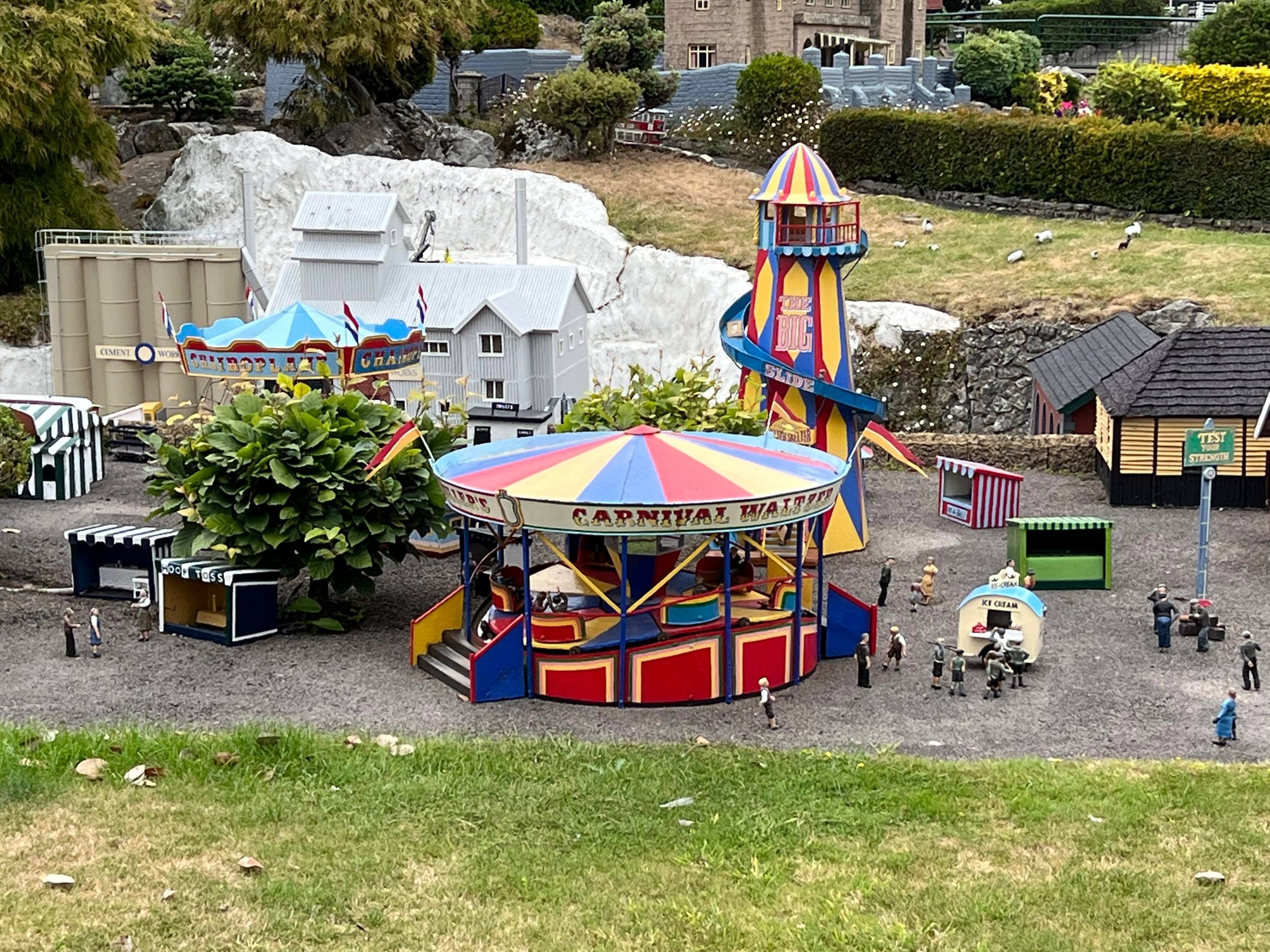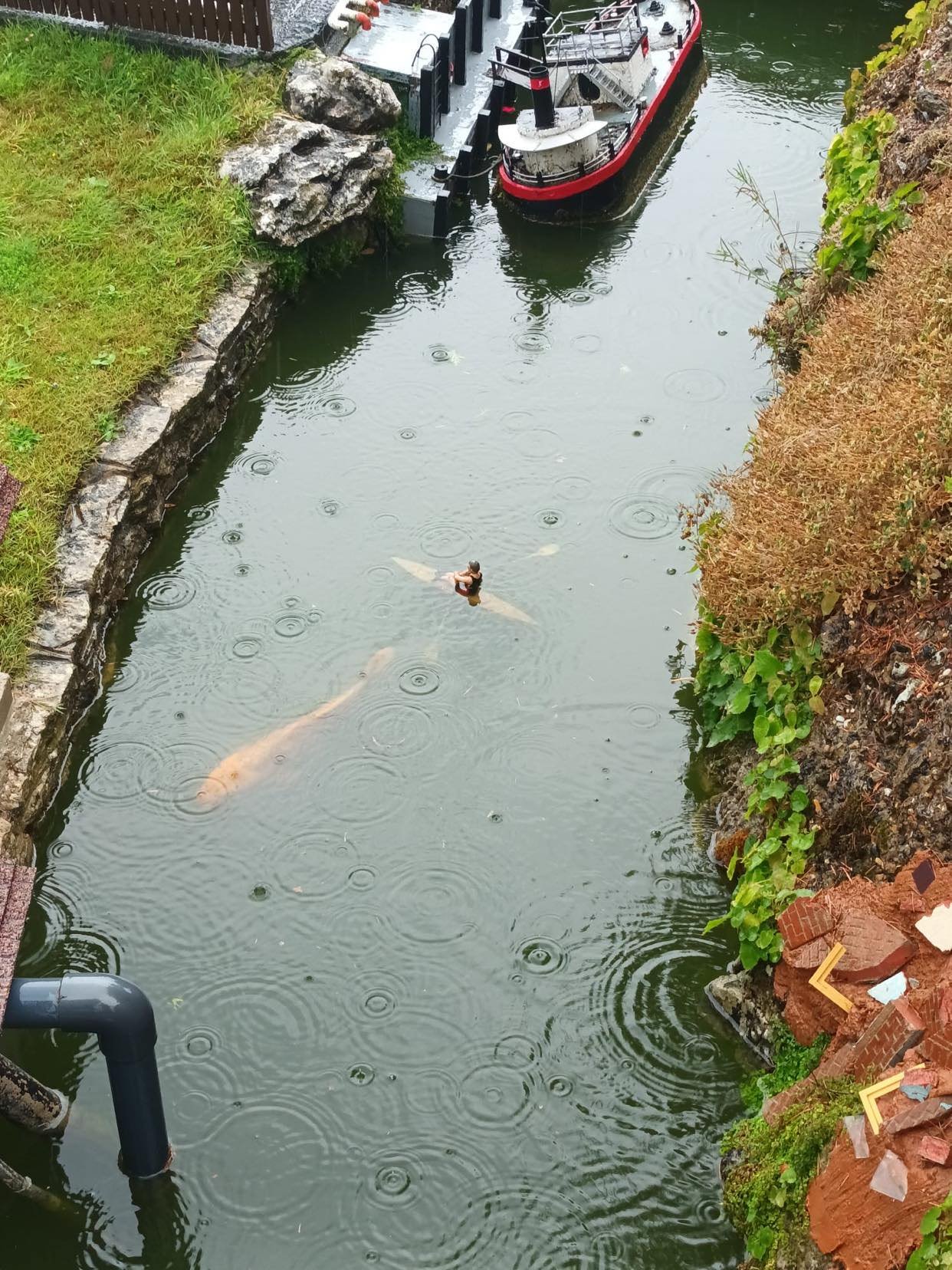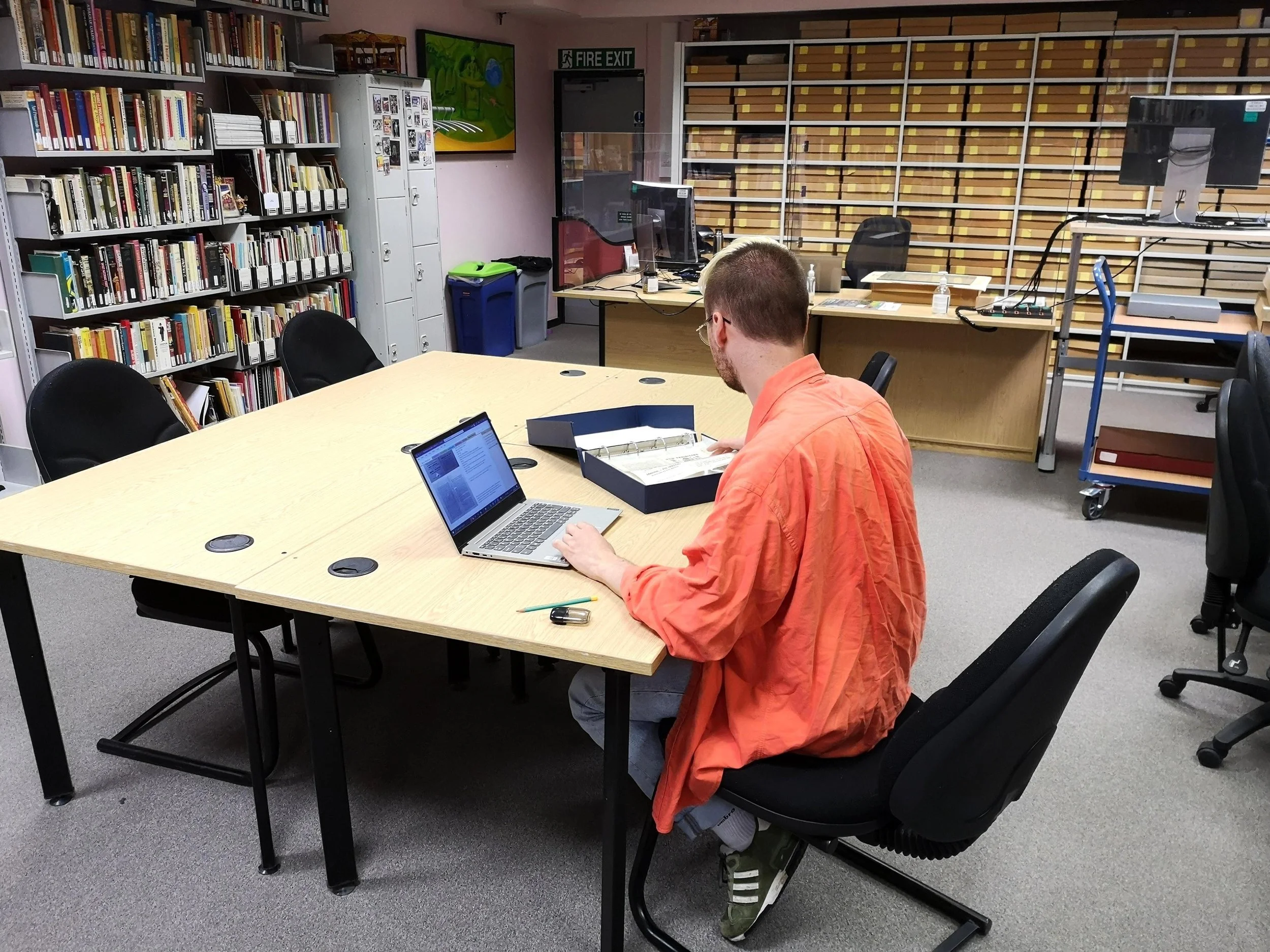A Tale of Two Research Trips
Image: Chris at the model railway.
In August this year I was awarded a College of Arts Research Support Award to combine two very different research trips in one: archival research at the Terry Pratchett special collection at Senate House in London and then a day trip to Bekenscot, the oldest model village in the world! Studying the development of world in building in the fantasy novels of Pratchett’s Discworld series is the subject of my PhD. The Senate House special collection would afford me the opportunity to delve further into the earliest press coverage on his writing, from the early 1980s onward. The second trip took me to the model village situated in Beaconsfield, just a short walk from Pratchett’s childhood home, but for myself an uneasy trip down memory lane.
Delving into Discworld
The first trip was the more traditional of the two, and its gains primarily academic. The Senate House contains around 3,000 items relating to Terry Pratchett, donated by his agent Colin Smythe: truly a unique resource. Many of these items are either extremely rare or simply do not exist anywhere else. Having them all gathered in one place is one of the uncontested benefits of archival research.
For my own purposes, tracing the evolving reception to Pratchett’s writing through early reviews and interviews, as well as promotional material and press cuttings, was fascinating and eye-opening in equal measure. Where else might I find a 1997 article from the Scarborough Evening News and Mercury on a boy named Duncan Hill winning a national competition by turning Detritus (one of Pratchett’s beloved troll characters) into a surfer from Baywatch? Finding wholly unexpected items like this, alongside more conventional press cuttings such as interviews in national newspapers, is one of the pure joys of losing yourself in an archive. It is the chance to do wholly original research.
Image: Chris’s photo of some archival materials he looked at with his notes.
Advice
Due to the sheer scale of the collection, however, it did help that this was my second time visiting the archive, as well as the fact that I’m nearing the end of my PhD. Having a much clearer idea of which chapters I could bolster through the archive, as well as the collection’s strongest areas of resource, allowed me to properly target my research, rather than adopting a more scattergun approach. Often items are held off site, and due to the way so many documents are labelled, you often won’t know what you have requested until the archivist hands it to you! So I would advise ordering more items than you think you’ll need, just in case some prove unhelpful. I would also recommend utilising the archivists as much as possible: these are very helpful and very enthusiastic people!
Model Trains, Nostalgic Lanes, and Ambiguous Gains
My second trip found me hopping on the train from London to Buckinghamshire, and the affluent market town of Beaconsfield. This was the childhood home of Pratchett, but also a place I had visited as a child, during holidays with the English side of my family. Coming to this part of the world from Edinburgh as a wee kid always involved the strange experience of being transported to leafy Bucks from Buckie-strewn Leith. This particular research trip was similarly imbued with ambiguous feelings of nostalgia and alienation; compared to Senate House, its gains were less tangible but no less real. My PhD involves researching an author I read avidly as a child, and revisiting Bekonscot was a reminder of my own life’s entanglement in this research. I have changed, as has the world, and so have the texts. The model village of Bekenscot has long been an inspiration for a particular kind of English fantasy featuring tiny people: think Mary Norton’s The Borrowers, or Enid Blyton’s cosy fiction. Pratchett’s own satirical fantasy world springs from this same very English soil. As a Scot writing on an English fantasy writer (as a Scot, moreover, who spent their childhood holidays with their English family) I am drawn to these tensions of outsiderdom and insiderdom.
The model village itself is a fascinating place: there is such obvious ingenuity and craft in the painstaking creation of this tiny town. Yet I also felt a discomfit in its unquestioning embrace of nostalgia for an England of the 1930s. Bekenscot is a place where the sun never sets on a kind of forever England. Cricket is forever played on the village green; Union Jack bunting flies everywhere; only small male figures saunter on its college lawns. Originally created in 1929 to mirror contemporary rural English life, all modern touches were removed in the 1990s and it now presents a deliberately museumified England. Yet the fantasy remains discoverable in the corner of the eye: not just in the smallness of the people and place, but in the juxtapositions between its world and our own. Small bushes are charmingly turned into trees for the village, but the fish in the pond resemble leviathans to the tiny figures on shore (or the poor man rowing a boat). A snail the size of a dog slithers past a postman. These accidental monstrosities of scale at the heart of this bucolic idyll may have fired the imagination of some of England’s foremost fantasy writers, and they continue to inspire today.
Images: Chris’s photos of the model railway.
Learning About Our Research and Ourselves
This research trip, whilst less traditionally academic than the archival visit, was a crucial piece of physical research for me. I needed to see these things, not just read about them. I needed to revisit a place from my past and overlay my adult understanding onto my childhood memories. Both understandings are crucial to grappling with the subjective entanglements of our own everchanging research. If I were to offer one piece of advice, it would be to not restrict yourself to only undertaking the traditional research trips (museums, conferences, etc), but to branch out and find new ways to envision the world of your research! At the same time, never discount the benefits of the archive, and the chance to burrow deep into the heart of those yellowing pages of the past. Either kind of fieldwork can take you to strange new places. You never know what you might find out about your research…or yourself.
Chris Lynch Becherer is sixth year (part-time) PhD candidate at the University of Glasgow, studying the development of world building in Terry Pratchett's Discworld series. He also co-runs Puck's Players, a fantasy theatre group! Connect with him: c.lynch.2@research,gla.ac.uk and @hopefullmirrlees on Twitter.








